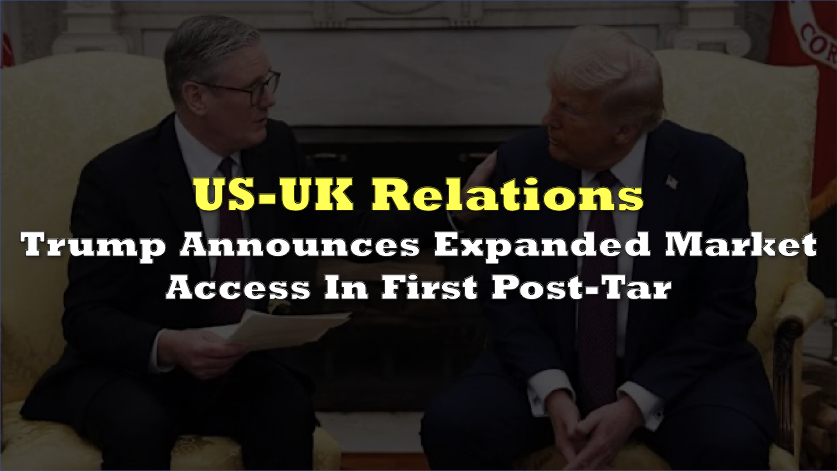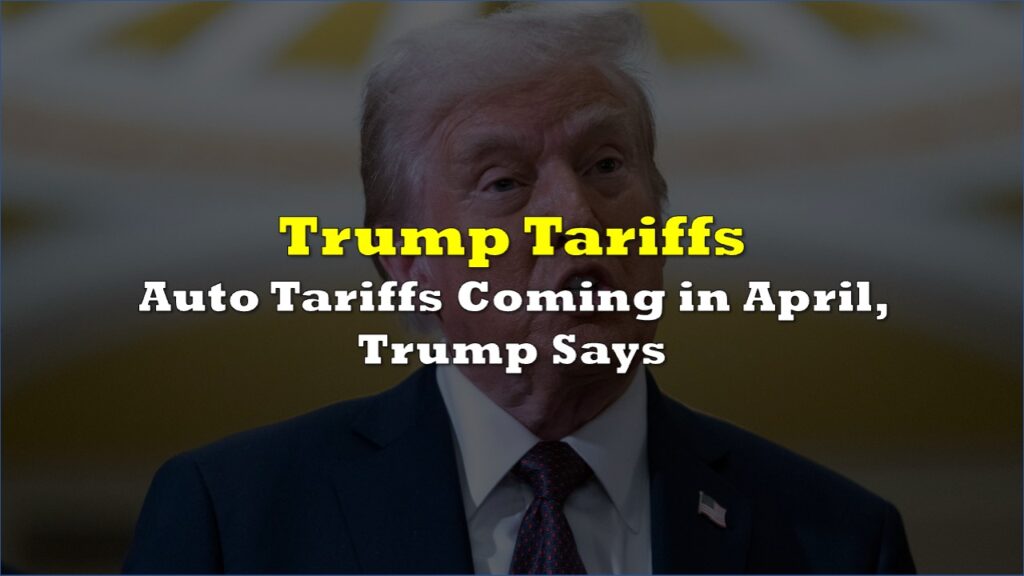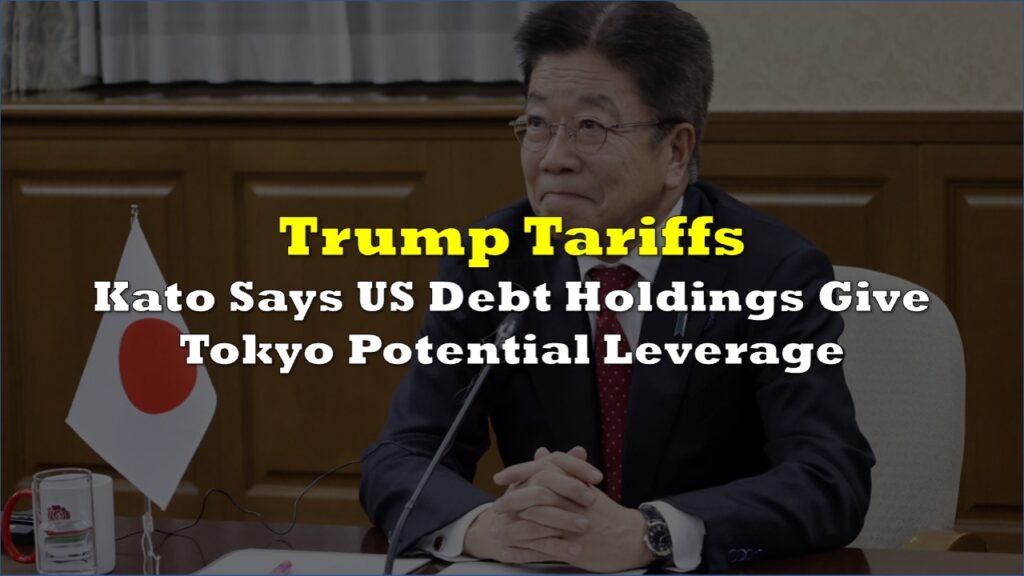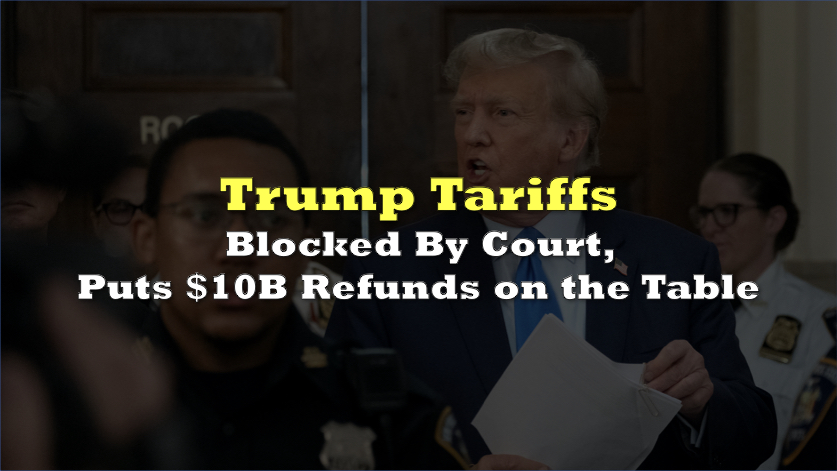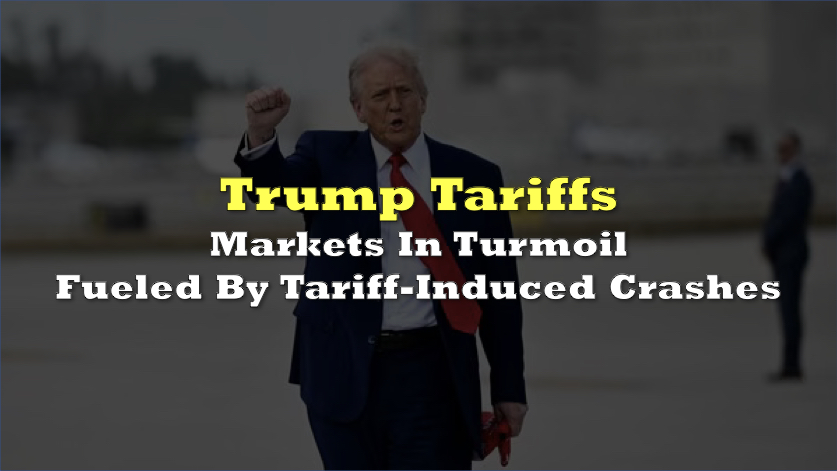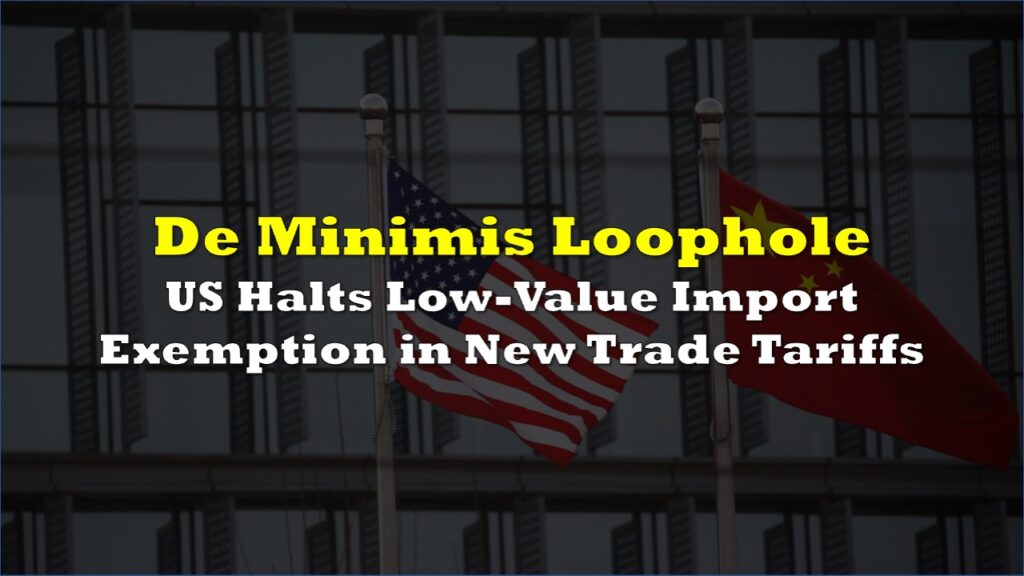President Donald Trump on Thursday announced a preliminary trade agreement with the UK—his first since escalating global tariffs last month—marking a politically strategic breakthrough for both his administration and UK Prime Minister Keir Starmer.
Speaking from the Oval Office, Trump declared the deal a “historic” framework that would “cement the relationship between the United States and the United Kingdom for many years to come.” The agreement, still pending finalization, includes expanded US market access to Britain—particularly for agricultural exports such as beef and ethanol—along with commitments by the UK to reduce non-tariff barriers and expedite American goods through customs.
“This deal includes billions of dollars in increased market access,” Trump said, framing the pact as a vindication of his “reciprocity and fairness” trade doctrine. Commerce Secretary Howard Lutnick projected $6 billion in new US revenue from a 10% tariff on British imports.
Starmer, calling into the press event via speakerphone, praised the deal as “a real tribute to the history that we have of working so closely together,” and one that would “protect jobs, create jobs, and open market access.”
He later emphasized that “some details still need ironing out,” reinforcing that the deal remains in draft form.
Strategically, the deal could alleviate pressure from Trump’s sweeping tariff program which levied up to 25% tariffs on autos, steel, and aluminum, including from UK suppliers. The UK’s auto industry, which exports over 25% of its vehicles to the US, has been hit particularly hard, and has pushed for tariff relief. The deal reportedly leaves the 10% import tax intact for now, though negotiations remain fluid.
Notably, the agreement will not compromise the UK’s regulatory standards on food safety—meaning chlorine-rinsed chicken and hormone-treated beef remain barred from entry.
For Trump, the timing serves both political and economic ends. The US enjoys a $12 billion goods trade surplus with the UK, making it a low-risk, high-reward partner to debut his second-term trade strategy. Despite accounting for just 2% of US goods imports, the UK is America’s eighth-largest trading partner, with $148 billion in bilateral trade in 2024.
The announcement also revives long-postponed hopes for a post-Brexit US-UK trade accord. While previous British governments courted the Trump administration unsuccessfully, Starmer’s diplomatic posture—avoiding criticism of Trump and refraining from retaliatory tariffs—appears to have paid off.
“With this president, with this prime minister, we’ve managed to achieve what many people tried to achieve for many years,” Starmer remarked.
Still, the symbolic nature of the deal outweighs its immediate economic impact. Trump’s broader goal—to rectify persistent trade deficits—remains largely untouched by this agreement, given the existing surplus with the UK. However, the administration views it as a template for similar deals with other trading partners, including South Korea, India, and Japan.
Treasury Secretary Scott Bessent confirmed that talks with 17 countries are underway, with more “agreements in principle” expected in the coming months.
Trump first teased the deal on Wednesday via Truth Social, calling it a “major trade deal” with a “big, highly respected country.” By Thursday morning, he revealed it was with the UK, declaring it the first of many and emphasizing that it was a “full and comprehensive” agreement that would “cement the relationship between the United States and the United Kingdom for many years to come.”
Information for this briefing was found via CBS, CNN, and the sources and companies mentioned. The author has no securities or affiliations related to this organization. Not a recommendation to buy or sell. Always do additional research and consult a professional before purchasing a security. The author holds no licenses.

